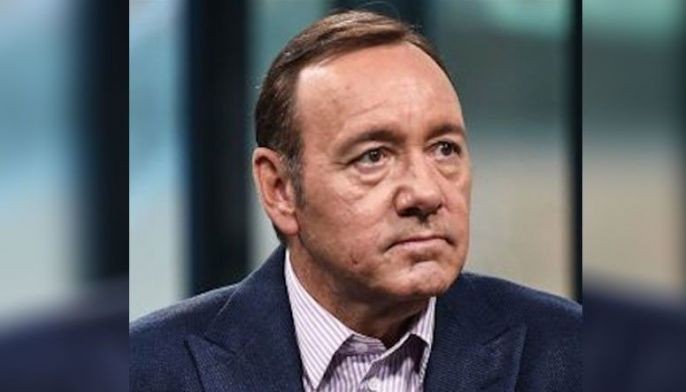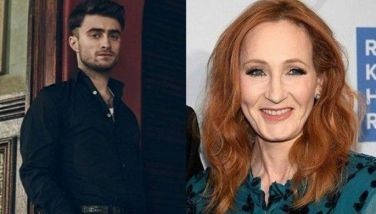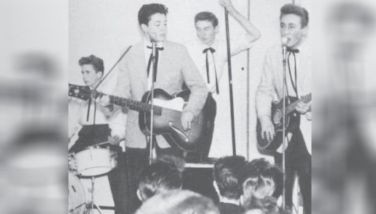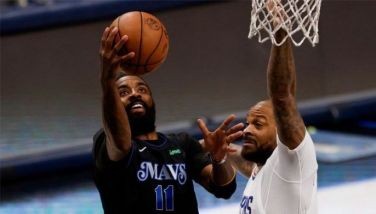The 1st Oscars, 75 years ago

March 1, 2004 | 12:00am
By this time, I’m sure that, like me and other Oscar-philes, you must have woken up early, freshened up and, burping from a breakfast of sinangag with crispy tuyo and tsokolate, smugly positioned before the TV set for the greatest show on earth...drum roll, please... The 76th Oscar Awards 2004!
What surprises will be sprung on us between now and the next four hours (covered "live" by RPN 9, starting at 9 this morning)? In previous Oscars, somebody streaked across the stage, an actress veered away from the script and delivered a "political statement," and a technical person lambasted US President George W. Bush for waging a war on Iraq and, last year, Adrien Brody caught presenter Halle Berry by surprise – what a surprise! – by giving her a wet kiss when he accepted his Best Actor Oscar (for Roman Polanski’s The Pianist).
Meanwhile, have you ever wondered who the first Oscar top winners were back in 1929 when the first batch of Oscar trophies (a gold-plated naked man 14 inches tall and weighing seven pounds, his sword pointed into a reel of film) were given out?
Don’t look now but I just got a book called The Academy Awards: The Complete History of Oscar (by Gail Kinn and Jim Piazza) as a pasalubong from Shirley Kuan-Saldias. What a beautiful and timely gift (complete with photos and roster of Oscar winners through the years).
Funfare will, however, take a look only at the winners of the first Oscars (for 1927 and 1928) given out on May 16, 1929 at the Blossom Room of the Hollywood Roosevelt Hotel, hosted by Douglas Fairbanks.
The Best Picture honors went to Wings, produced by Paramount Famous Lasky and directed by William Wellman, described as "a spectacle about the World War I aerial battles in state-of-the-art visual effects."
The Best Actress award went to Janet Gaynor (1906-1984) for the films 7th Heaven (Fox, 1927), Sunrise (Fox, 1927) and Street Angel (Fox, 1928).
Here’s a backgrounder on Gaynor by Kinn and Piazza:
Backstage, after the Awards ceremony, Gaynor was reported to have been asked what was most exciting about winning. The young actress chirped, "Meeting Douglas Fairbanks!"
The delicate, dainty Gaynor attained stardom with her ability to project sweetness without becoming cloying. She played bit parts in Hal Roach comedies and B Westerns, but her career finally took off with The Johnstown Flood (1926). That performance drew her into 20th Century Fox’s "Irish Mafia." She then worked with John Ford in The Shamrock Handicap and The Blue Eagle (both 1926). Gaynor garnered her Oscar-winning roles in films made by German director F.W. Murnau, who was charmed by the petite actress. Gaynor was best known for her on-screen teaming with Charles Farrell, with whom she co-starred in 10 films, among them Street Angel (1928), the moving Lucky Star and the jaunty musical Sunny Side Up (both 1929).
Gaynor became a big box-office star in the talkies, in such films as Daddy Long Legs (1931), State Fair (1933) and A Star is Born (1937). She retired from film after appearing in Three Loves Has Nancy and The Young in Heart (both 1938), returning only once, in Bernadine (1957). Gaynor died following complications from a car crash that also injured actress Mary Martin.
The Best Actor Award was won by Emil Jannings (1884-1950) for the films The Last Command and The Way of All Flesh, both by Paramount Famous Lasky.
Here’s a backgrounder on Jannings, also by Kinn and Piazza:
Before coming to Hollywood, Jannings played to type, with his bearlike insistent stature, and garnered roles as rigid authoritarians, including that of Dimitri in The Brothers Karamazov (1920), Othello (1922) and Faust (1926, as Mephistopheles). His appearances in the F.W. Murnau classics, The Last Laugh (1924) and Variety (1925) brought Jannings to Hollywood in 1927, where he won the first Best Actor Oscar ever awarded.
With his thick German accent, there was not much for Jannings to do in the talkies. He returned to Germany, where his appearance with Marlene Dietrich in Josef von Sternberg’s brilliant The Blue Angel (1930) was a triumph for him. Unfortunately, on his return to his native Germany he became a Nazi sympathizer and spent the next decade making Nazi propaganda films. He was named Artist of the State by Goebbels in 1941. With the fall of Hitler, Jannings found no welcomes back in the international filmmaking community. He never made another film, and died of cancer five years later.
Nowadays, the Oscar night is held at the new Kodak Theater in the heart of Hollywood and winners celebrate by partying until the wee hours of the next morning. How was the first Oscars held back then, 75 years ago?
Here again are Kinn and Piazza:
In the beginning it was mostly about the food. Sources vary as to the precise menu, but clearly losers didn’t whine on empty stomachs. The 270 guests paid five bucks apiece for such festive possibilities as Lobster Eugenie, Filet of Sole au Beurre, Jumbo Squab, and, with a touch of hometown spirit, Los Angeles Salad. Dancing followed, and newcomer Janet Gaynor, just turned 21 and still living with her mother, was more awed by the whirl of famous faces than by the Best Actress Award she’d received.
The orchestra was silenced when MGM chief, Louis B. Meyer, decided it was time to get down to business. The banquet, the Awards and, in fact, the very foundation of the Academy were his brainchild back in 1927. His original intention was more bottom-line than glamour. He’d hoped to unite the industry’s power players in squeezing out the labor unions. When that failed, it was decided that the Academy would serve as its own censor before the government got into the act. Though the movies had become the fourth-largest industry in America, there were already rumblings about its often titillating product from concerned mothers and clergymen. The industry needed a touch of class and a public-relations coup. The idea of awarding a golden statuette to the best of the best was just the ticket.
The winners had been named three months before, which eliminated any suspense during the five-minute presentation ceremony. Douglas Fairbanks called out their names, they came forward to collect either statuettes or honorary scrolls, and sat at the head table. Producer Darryl F. Zanuck gave the only speech after picking up a Special Award for the first talkie, The Jazz Singer. Its star, Al Jolson, ended the evening with a song and the first big laugh in Oscar history when he said, "For the life of me I can’t see what Jack Warner can do with one of these awards. It can’t say yes."
Meanwhile, after that lengthy refresher, let’s sit back and relax and enjoy every moment of The Greatest Show on Earth.
The envelope, please...
(E-mail reactions at [email protected])
What surprises will be sprung on us between now and the next four hours (covered "live" by RPN 9, starting at 9 this morning)? In previous Oscars, somebody streaked across the stage, an actress veered away from the script and delivered a "political statement," and a technical person lambasted US President George W. Bush for waging a war on Iraq and, last year, Adrien Brody caught presenter Halle Berry by surprise – what a surprise! – by giving her a wet kiss when he accepted his Best Actor Oscar (for Roman Polanski’s The Pianist).
Meanwhile, have you ever wondered who the first Oscar top winners were back in 1929 when the first batch of Oscar trophies (a gold-plated naked man 14 inches tall and weighing seven pounds, his sword pointed into a reel of film) were given out?
Don’t look now but I just got a book called The Academy Awards: The Complete History of Oscar (by Gail Kinn and Jim Piazza) as a pasalubong from Shirley Kuan-Saldias. What a beautiful and timely gift (complete with photos and roster of Oscar winners through the years).
Funfare will, however, take a look only at the winners of the first Oscars (for 1927 and 1928) given out on May 16, 1929 at the Blossom Room of the Hollywood Roosevelt Hotel, hosted by Douglas Fairbanks.
The Best Picture honors went to Wings, produced by Paramount Famous Lasky and directed by William Wellman, described as "a spectacle about the World War I aerial battles in state-of-the-art visual effects."
The Best Actress award went to Janet Gaynor (1906-1984) for the films 7th Heaven (Fox, 1927), Sunrise (Fox, 1927) and Street Angel (Fox, 1928).
Here’s a backgrounder on Gaynor by Kinn and Piazza:
Backstage, after the Awards ceremony, Gaynor was reported to have been asked what was most exciting about winning. The young actress chirped, "Meeting Douglas Fairbanks!"
The delicate, dainty Gaynor attained stardom with her ability to project sweetness without becoming cloying. She played bit parts in Hal Roach comedies and B Westerns, but her career finally took off with The Johnstown Flood (1926). That performance drew her into 20th Century Fox’s "Irish Mafia." She then worked with John Ford in The Shamrock Handicap and The Blue Eagle (both 1926). Gaynor garnered her Oscar-winning roles in films made by German director F.W. Murnau, who was charmed by the petite actress. Gaynor was best known for her on-screen teaming with Charles Farrell, with whom she co-starred in 10 films, among them Street Angel (1928), the moving Lucky Star and the jaunty musical Sunny Side Up (both 1929).
Gaynor became a big box-office star in the talkies, in such films as Daddy Long Legs (1931), State Fair (1933) and A Star is Born (1937). She retired from film after appearing in Three Loves Has Nancy and The Young in Heart (both 1938), returning only once, in Bernadine (1957). Gaynor died following complications from a car crash that also injured actress Mary Martin.
The Best Actor Award was won by Emil Jannings (1884-1950) for the films The Last Command and The Way of All Flesh, both by Paramount Famous Lasky.
Here’s a backgrounder on Jannings, also by Kinn and Piazza:
Before coming to Hollywood, Jannings played to type, with his bearlike insistent stature, and garnered roles as rigid authoritarians, including that of Dimitri in The Brothers Karamazov (1920), Othello (1922) and Faust (1926, as Mephistopheles). His appearances in the F.W. Murnau classics, The Last Laugh (1924) and Variety (1925) brought Jannings to Hollywood in 1927, where he won the first Best Actor Oscar ever awarded.
With his thick German accent, there was not much for Jannings to do in the talkies. He returned to Germany, where his appearance with Marlene Dietrich in Josef von Sternberg’s brilliant The Blue Angel (1930) was a triumph for him. Unfortunately, on his return to his native Germany he became a Nazi sympathizer and spent the next decade making Nazi propaganda films. He was named Artist of the State by Goebbels in 1941. With the fall of Hitler, Jannings found no welcomes back in the international filmmaking community. He never made another film, and died of cancer five years later.
Nowadays, the Oscar night is held at the new Kodak Theater in the heart of Hollywood and winners celebrate by partying until the wee hours of the next morning. How was the first Oscars held back then, 75 years ago?
Here again are Kinn and Piazza:
In the beginning it was mostly about the food. Sources vary as to the precise menu, but clearly losers didn’t whine on empty stomachs. The 270 guests paid five bucks apiece for such festive possibilities as Lobster Eugenie, Filet of Sole au Beurre, Jumbo Squab, and, with a touch of hometown spirit, Los Angeles Salad. Dancing followed, and newcomer Janet Gaynor, just turned 21 and still living with her mother, was more awed by the whirl of famous faces than by the Best Actress Award she’d received.
The orchestra was silenced when MGM chief, Louis B. Meyer, decided it was time to get down to business. The banquet, the Awards and, in fact, the very foundation of the Academy were his brainchild back in 1927. His original intention was more bottom-line than glamour. He’d hoped to unite the industry’s power players in squeezing out the labor unions. When that failed, it was decided that the Academy would serve as its own censor before the government got into the act. Though the movies had become the fourth-largest industry in America, there were already rumblings about its often titillating product from concerned mothers and clergymen. The industry needed a touch of class and a public-relations coup. The idea of awarding a golden statuette to the best of the best was just the ticket.
The winners had been named three months before, which eliminated any suspense during the five-minute presentation ceremony. Douglas Fairbanks called out their names, they came forward to collect either statuettes or honorary scrolls, and sat at the head table. Producer Darryl F. Zanuck gave the only speech after picking up a Special Award for the first talkie, The Jazz Singer. Its star, Al Jolson, ended the evening with a song and the first big laugh in Oscar history when he said, "For the life of me I can’t see what Jack Warner can do with one of these awards. It can’t say yes."
Meanwhile, after that lengthy refresher, let’s sit back and relax and enjoy every moment of The Greatest Show on Earth.
The envelope, please...
(E-mail reactions at [email protected])
BrandSpace Articles
<
>
- Latest
- Trending
Trending
Latest
Trending
Latest
Recommended
























 Exclusive
Exclusive






